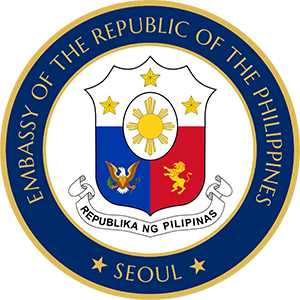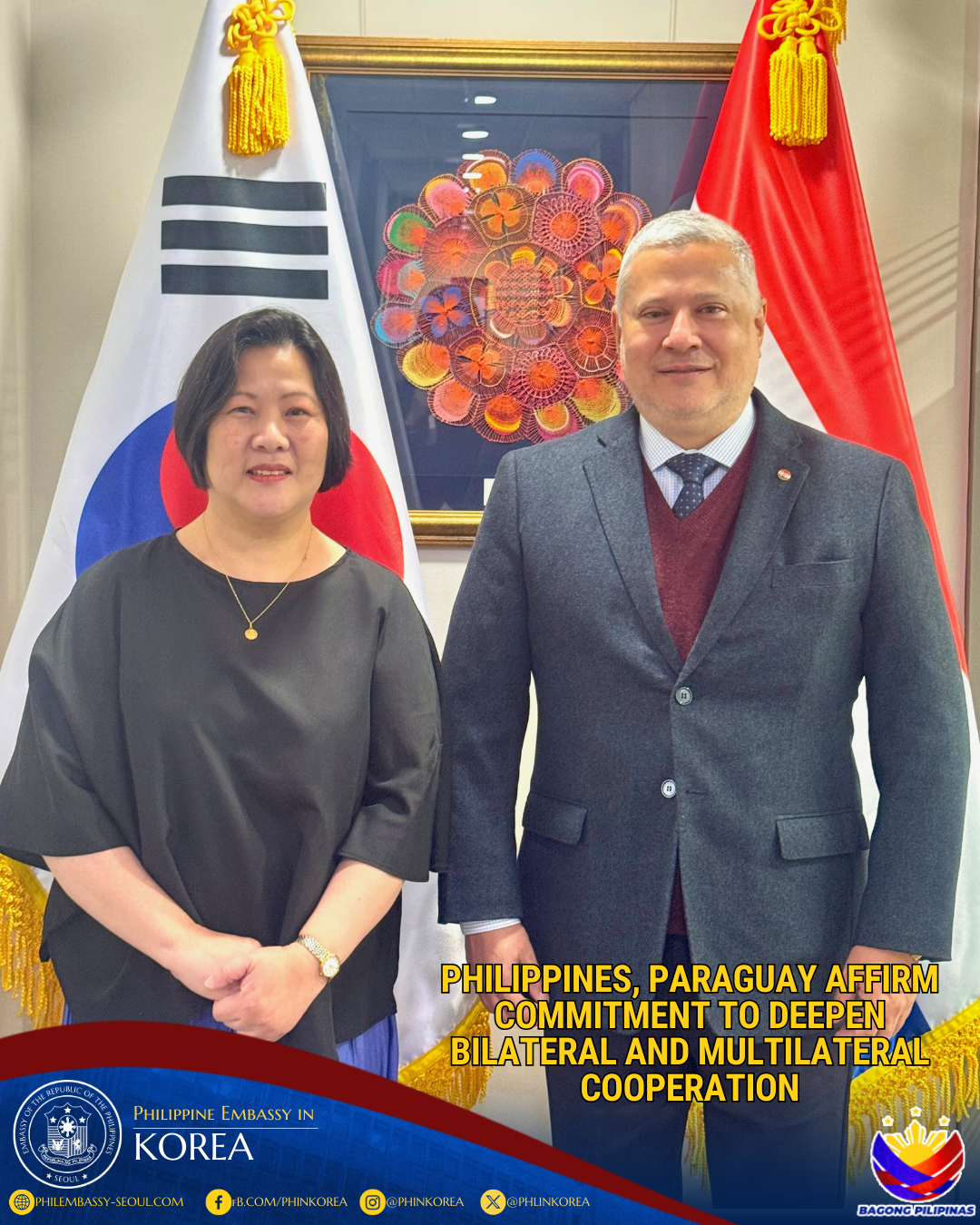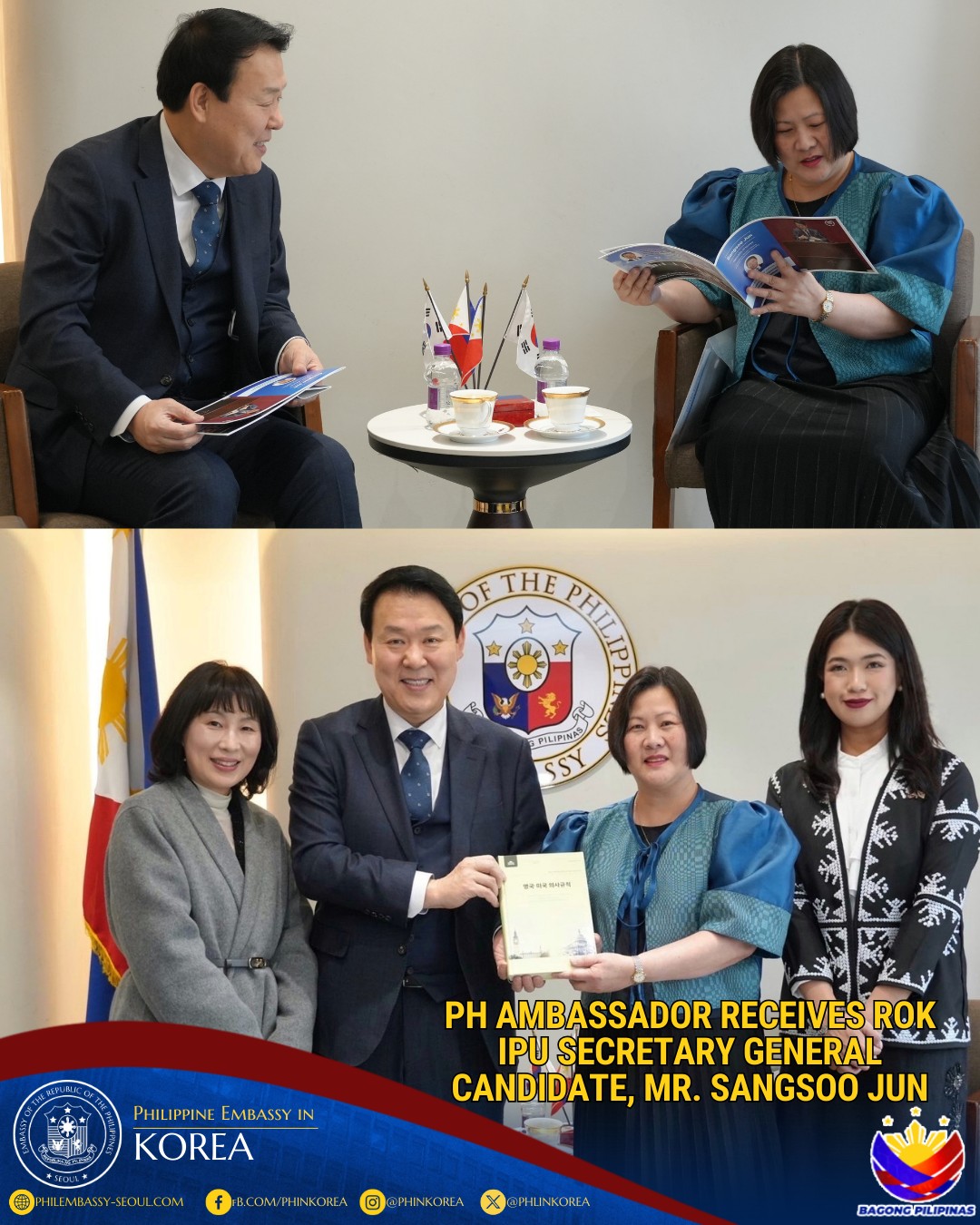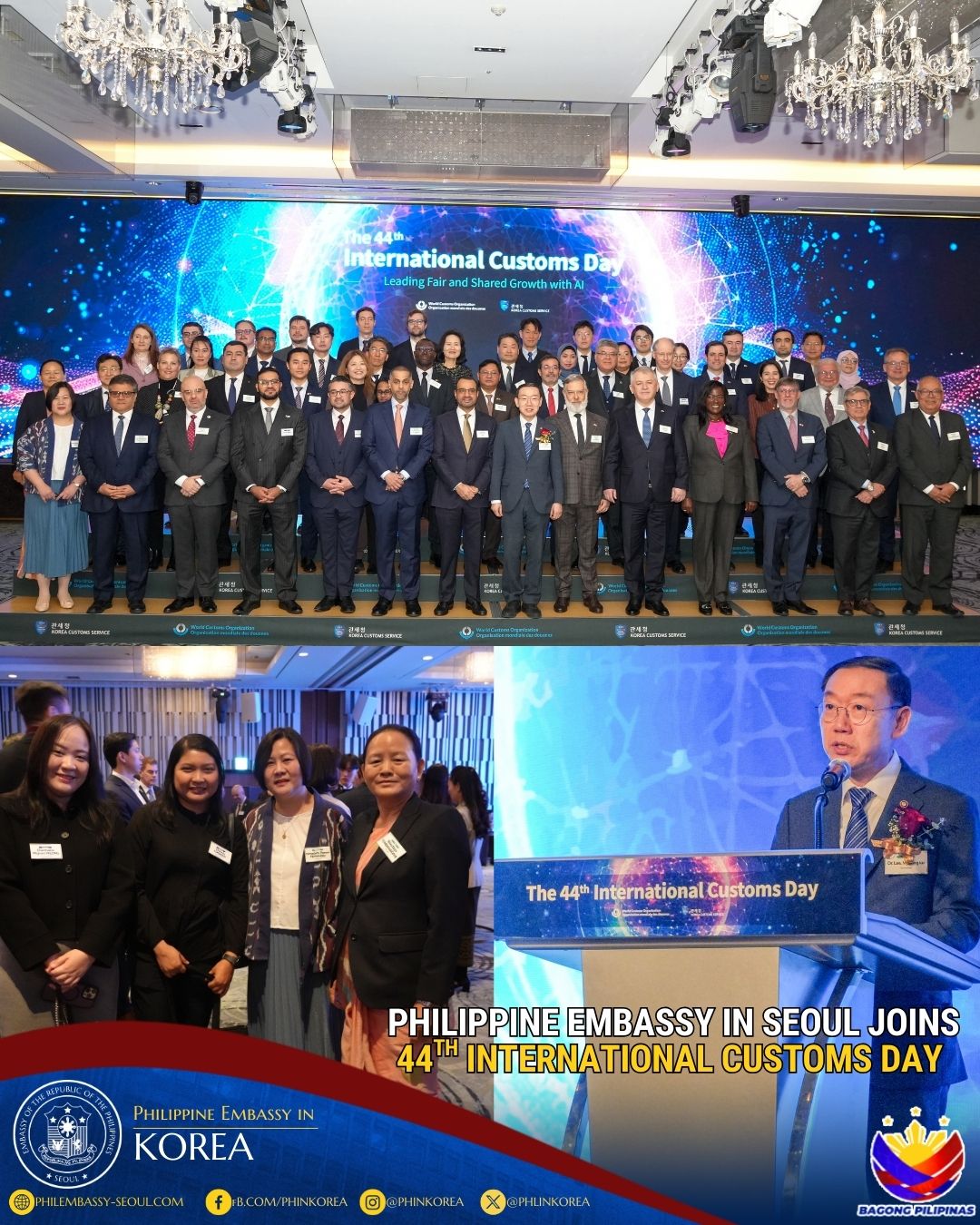“Progress in 21st Century East Asia, the Power of Human Resourceâ€
Mr. Lee recently met Amb. Luis T. Cruz at the Philippine Embassy in Seoul to discuss the mutually beneficial relations between the Philippines and South Korea and to listen to the Ambassador’s views (on various topics. During the interview,) Amb. Cruz also expressed his desire for Lee Myung-bak, the South Korean President, to visit his country. “South Korea and the Philippines have established mutual trust, shared a common vision and cooperated for the development of East Asia in the 21st century,†he explained. He specifically pointed out that the exchange of human resources and cultural cooperation will enhance the level of the two countries’ diplomatic relationship.
Mr. Lee: What would the most important matter to develop in Korea-Philippine relations? â–²Ambassador Luis: Philippine President (Gloria Macapagal) Arroyo thinks that peace talks in the peninsula, including Pres. Lee’s effort to help bring about nuclear disarmament in the Korean Peninsula, will help maintain a peaceful atmosphere not only in Asia but also in the world. Economic, political, and socio-cultural relations between the Philippines and South Korea have developed. However, other sectors like peace and security, energy, and information technology should be expanded. From a future-oriented perspective, academic relations between Korean and Filipino college students should be enhanced. Security for foreigners must be ensured. -Mr. Lee: You recommend exchanges with Filipinos for English education. â–²Ambassador Luis: The Philippines is one of the attractive places to learn English. The country ranked third in terms of use of English as an official language. There are several well-known universities like UP, Ateneo and De La Salle. Korean students would meet their needs since students in UP, the best public university in the Philippines, and other private schools use English in their class. There is also a geographical advantage; parents can easily visit their children since it takes only three hours and a half to go to the Philippines. The affordable plane tickets mean a stable relationship between parent and child. Students in the US, Canada, or UK spend approximately 35 to 50 million won but they do not have to spend that much in the Philippines—only 17 million won for high-quality education. In my opinion, personal exchanges are mutually beneficial. However, good Filipino teachers are having a hard time getting a job in Korea. This situation needs the attention of the Korean government. That this administration only allows teachers from the US, Canada, Australia, UK, and New Zealand to teach in Korea leaves much to be desired. -Mr. Lee: What do you think about Korean students studying abroad who fail to adapt because of cultural difference? â–²Ambassador Luis: Parents are concerned about economic matter most. They have no choice but leave their children alone because of unaffordable plane tickets. However, parents who have their children in the Philippines can visit whenever they want. One-on-one tutorials could also maximize the effect of English education. Students can concentrate on studying English without worrying about preparing meals, cleaning, and doing laundry. Also, Western people tend to have a bias against Asians. Filipinos, meanwhile—also English speakers—are hospitable to foreigners. This helps foreign students adapt easily and fast. -Mr. Lee: I heard that Lee Myung-bak was asked to visit to the Philippines. â–²Ambassador Luis: Both countries agreed to cooperate with each other in the 3rd East Asia Summit and ASEAN Regional Forum. The presidential meeting will develop not only their diplomatic relationship but also that of other East Asian countries. For more understanding and cooperation, I hope a meeting will take place as soon as possible. -Mr. Lee: What do you think about economic relations between the two countries? And do you have anything else to share? â–²Ambassador Luis: Korean investments in the Philippines amount to around $1.85 billion. This is proof that the Philippines is the most appropriate place to invest in. It also shows that the Philippines and South Korea are economic partners. Specifically, Hanjin Corporation will construct a shipbuilding yard and ship parts factory amounting to $1 billion. KEPCO is also planning to invest in the energy business in Cebu and Batangas. The investments cost a total of $230 thousand and $600 thousand, respectively. Aside from these, there are investments in manufacturing, ship construction, and mining, which give more jobs to Filipinos. The tourism sector is developing. Twenty percent of 2.8 million visitors were Korean in 2006. Korean residents in the Philippines number approximately 120,000. Filipinos love Korea. Korean telenovelas brought by the Korean wave have touched the Filipino heart. Many Filipinos are undeniably fans of Korean telenovelas. I truly hope for a relationship that persistently develops. Thanks too to the subscribers of Kyeonggi Maeil and to the Korean people. Translated from the Kyeonggi Daily 2008.04.27


 January 28, 2026
January 28, 2026
 January 26, 2026
January 26, 2026
 January 29, 2026
January 29, 2026
